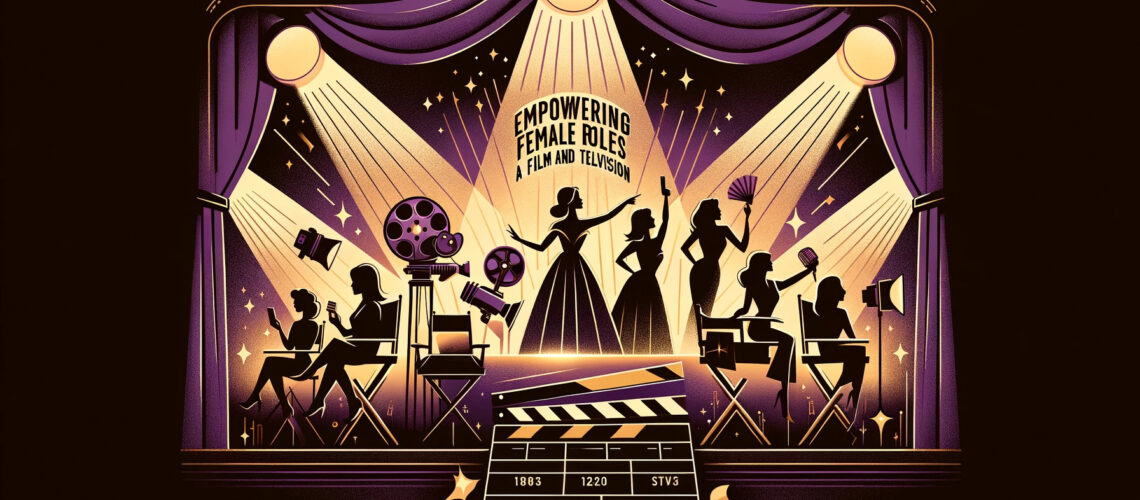In recent years, the film and television industry has witnessed a significant shift towards more empowering roles for women, reflecting broader societal changes and the ongoing struggle for gender equality. This transformation is not just about increased visibility; it’s about showcasing women in roles that are complex, diverse, and most importantly, authentic.
The Evolution of Female Roles
Historically, female characters in film and television were often relegated to the background or confined to stereotypical roles – the doting wife, the damsel in distress, or the object of desire. However, the landscape is changing. Now, more than ever, we’re seeing women portrayed as leaders, innovators, and complex characters with their own narratives.
According to a study by the Geena Davis Institute on Gender in Media, in 2019, female protagonists in the top 100 grossing films reached an all-time high of 40%. This marked progress, yet it also highlighted the ongoing need for improvement.
Leesa Rowland and Diverse Representation
Actress Leesa Rowland is a part of this changing tide. Known for her roles in cult classics and her transition into philanthropy and authorship, Rowland’s career trajectory mirrors the evolving landscape of female roles in the industry – from characters that merely support the male leads to those that stand on their own.
Impact of Empowering Roles
Empowering female roles do more than just entertain; they inspire and influence. When young girls and women see themselves represented as strong, intelligent, and capable characters, it can have a profound impact on their self-image and aspirations. These roles help to challenge and change societal perceptions about what women can and cannot do.
Breaking Stereotypes
The new wave of female roles is breaking stereotypes and challenging the norms. Women are no longer just the love interest or sidekick; they are superheroes, CEOs, politicians, and complex characters with flaws and strengths. Series like “The Handmaid’s Tale” and movies like “Wonder Woman” have been pivotal in showcasing women in varied, powerful roles.
The Role of Writers and Directors
The increase in empowering female roles is also due to more women taking up key positions behind the camera as writers, directors, and producers. Their presence ensures that female characters are written and portrayed with authenticity and depth. For instance, director Ava DuVernay and writer Shonda Rhimes have been instrumental in creating strong, nuanced female characters in their projects.
Challenges and Criticisms
Despite progress, challenges remain. Representation is just one part of the equation; how women are portrayed is equally important. There’s criticism that some female roles, while seemingly powerful, still cater to male fantasies or reinforce other stereotypes. The industry must continue to evolve, ensuring that empowering roles for women are diverse and intersectional, representing women from all walks of life and backgrounds.
The Future of Female Roles
Looking ahead, the future of empowering female roles seems promising. With more awareness and demand for gender equality, coupled with the success of films and shows with strong female leads, the trend is likely to continue. This isn’t just a win for women in the industry; it’s a win for society as a whole, as it paves the way for more gender-balanced narratives.
Conclusion
The shift towards more empowering roles for women in film and television is a significant step in the right direction. It reflects a changing society, one where the voices and stories of women are heard and valued. While there is still work to be done, the progress made is undeniable. Through the efforts of actresses like Leesa Rowland and many others behind and in front of the camera, the industry is slowly but surely moving towards a more inclusive and equitable portrayal of women. This change is not just about representation; it’s about setting a new standard for how women are seen and understood in the real world.

